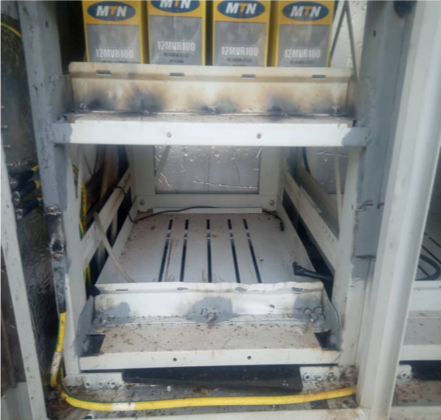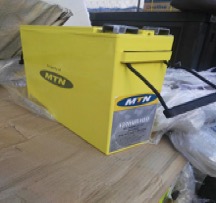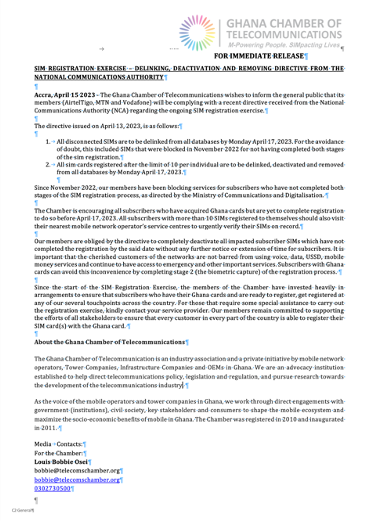Criminals get 10 years in jail for MTN cell tower battery theft in SA – that would be the story soon in Ghana
Theft and vandalization of telecommunication infrastructure is a major challenge facing the industry across the continent. The situation is very serious in Ghana too. The Ghana Chamber of Telecommunication reached out to the past Chief Justice, and her Ladyship extended the mandate of the copper courts.
So, these specialised courts would now also take on fibre cuts, theft and vandalism at the cell sites. The Chamber is planning workshop for the Circuit Judges, Police Investigators and Prosecutors on new trends of fibre cuts, vandalization of telecommunication equipment and cable theft by providing valuable information on optic fibre cable infrastructure, other telecommunication equipment setup, damage, vandalism & theft scenarios and their impacts, as well as create the platform for experiential sharing among your Honours and Police on judicial process, prosecution requirements and admissibility of evidence towards successful prosecution. This would be organised in conjunction with the Judicial Training Institute and the Police Service.
We hope we would soon be able to also imprison those who recklessly cut fibre and those who steal fuel, batteries, ACs and other equipment from cell sites. In 2019 alone over 3,610 fibre cuts were recorded resulting over 480 days of cumulative customer connectivity lost time due to the fibre cuts. We also lost over 240,000 litres of diesel siphoned from generators at the cell sites as well as over 800 batteries, etc stolen in 2019. These all have dire consequences for the industry.
There is the Electronic Communications Act 2008, Act 755 which states in section 75 that A person who (a) recklessly, maliciously or negligently damages, removes or destroys a facility, or (b) recklessly, intentionally or negligently interferes with, causes damage to, or accesses without authorisation a computer, switch or other facility used in connection with the operation or provision of electronic communications network or service, commits an offence, and is liable on summary conviction to a fine of not more than three thousand penalty units or to a term of imprisonment of not more than five years or both.

This would soon be our story as is what is happening in South Africa, read the story;
MTN’s efforts to prevent battery theft and vandalism at cell tower base stations are bearing fruit, with 143 batteries worth R1.2 million recovered in January 2020.
However, the company said it was facing a continuing battle with criminal syndicates as battery theft incidents continue to rise.
“A total of 338 batteries worth R4 million stolen from MTN base stations were recovered in July last year, with 275 batteries worth almost R3 million recovered in September.
“The number of arrests also ticked up appreciably to an annual high of 22 in September,” the group said.
In another major victory, three suspects were apprehended in October last year in a joint operation between Bidvest Protea Coin and the SAPS.
A total of eight MTN Lithium-Ion Batteries and eight Telkom Lead Acid batteries were recovered, and sentences of between 5-10 years were meted out by the magistrate on 28 January for the offence of tampering with essential infrastructure.
“This is an excellent breakthrough in the work and determination between the Madelene SAPS and Bidvest Protea Coin as these individuals were classified as a syndicate within the area.
“What this and the other small successes show is that when the public, industry and security and police forces work together, we can make a dent in criminal activity,” said MTN general manager: Network Operations, Ernest Paul.
Recent statistics show that 703 batteries were stolen from MTN stations in January 2020 with a total of 122 incidents. Cable theft also increased over December and January, with 109 incidents in January.
“The reality is criminal syndicates are looking for ways around the security measures and this has again raised the bar for the industry and the public, working hand-in-hand hand with law enforcement and security companies.”
“A lot more work needs to be done to stay a step ahead, especially as vandalism at base stations can keep many consumers offline for long periods, or even completely destroy the base station, leaving people with no access at all,” said Paul.
Load shedding
Paul said that all national cellular networks remain under increasing pressure to improve recoveries and reduce theft as the knock-on effects will become more severe if left unchecked.
He added that new rounds of load-shedding are increasing the risks, with networks placed under increased strain to get power back up. The battery back-up system generally takes 12-18 hours to recharge, while batteries generally have a capacity of 6-12 hours, depending on the site category.
“Network coverage is lost if we do not have batteries, while cases of vandalism, cable theft and diesel theft remain high,” said Paul.
“We need everyone to join forces if we are to truly fight back against the sophisticated syndicates behind these crimes, and MTN is certainly doing that early in 2020 to ensure we limit the damage and ensure our customers still get quality network coverage.”
Source: https://businesstech.co.za
Similar stories
https://mybroadband.co.za/news/telecoms/338500-battery-theft-epidemic-in-south-africa.html
https://businesstech.co.za/news/telecommunications/371356/thieves-caught-with-more-than-24-vodacom-cellphone-tower-batteries/
This post has already been read 888 times!








Post Comment